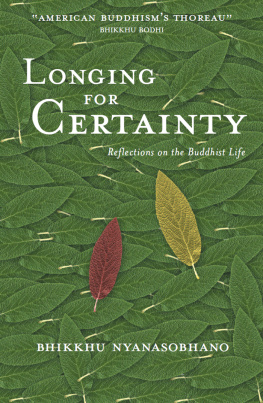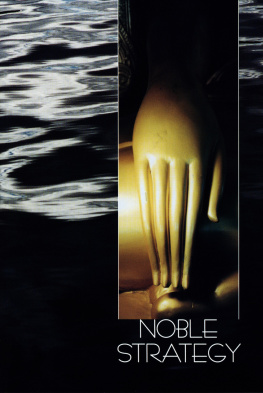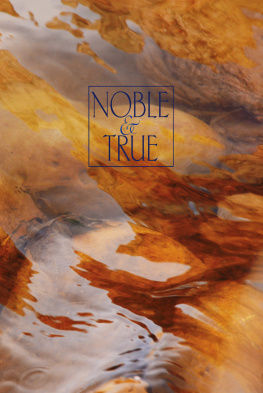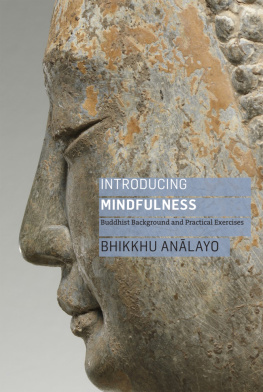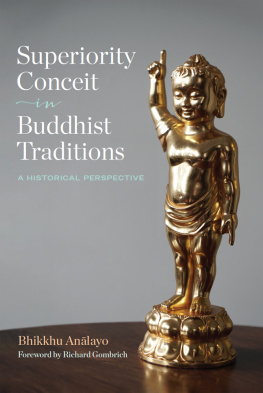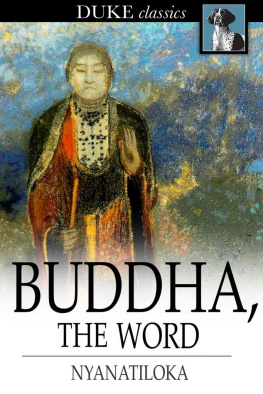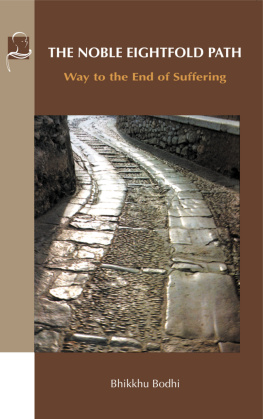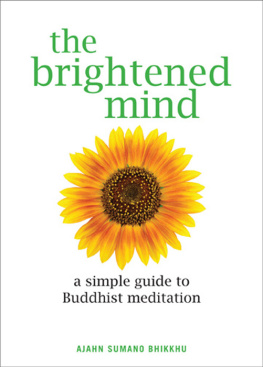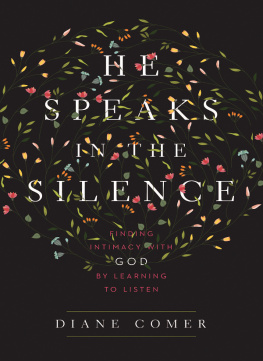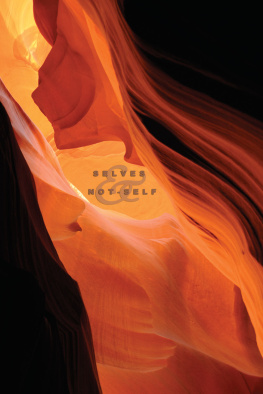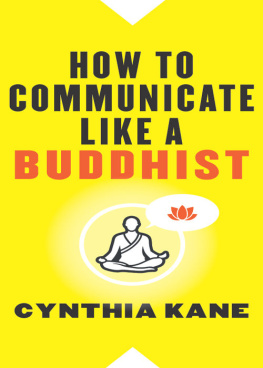

Wisdom Publications
199 Elm Street
Somerville MA 02214 USA
www.wisdompubs.org
2003 by Bhikkhu Nyanasobhano
All rights reserved.
No part of this book may be reproduced in any form or by any means, electronic or mechanical, including photography, recording, or by any information storage and retrieval system or technologies now known or later developed, without permission in writing from the publisher.
Library of Congress Cataloging-in-Publication Data
Nyanasobhano, Bhikkhu
Longing for certainty : reflections on the Buddhist life / Bhikkhu Nyanasobhano.
p. cm.
ISBN 0-86171-338-9 (alk. paper)
eBook ISBN 978-0-86171-897-9
1. Spiritual lifeBuddhism. 2. BuddhismDoctrines. I. Title.
BQ4302.N94 2002
294.3/42041-dc21
2002151891
First Edition
08 07 06 05 04 03
6 5 4 3 2
Cover design by Roger Dormann
Interior design by Stephanie Doyle
Wisdom Publications books are printed on acid-free
paper and meet the guidelines for permanence and
durability set by the Council of Library Resources.
Printed in the United States of America

T he essays in this book explore the teachings of the Buddha from the standpoint of the Theravda, the doctrine of the elders. These teachings have come down to us in words, and it is through attention to words that we get our first understanding of how the Buddha viewed the world and how he advised his followers to practice in order to achieve happiness. But words too often remain theoretical for us, not moving us to action, unless we can find their concrete counterparts in our daily lives. One aim of this book, then, is to suggest how to look upon the scenes that surround us, how to find useful illustrations of Buddhist principles in our own immediate experience.
As strange and confusing as this human world is, it holds precious and obtainable truth. Sights, sounds, smells, and all kinds of sensory events blossom in endless profusion; mental and physical processes run on; actions produce results large and small. If we perceive these things with mindfulness and notice how they exemplify the teachings of the Buddha we can find the motivation and the means for a worthier life.
This book also aims to present Buddhism as a system of belief and practice founded upon the Buddhas understanding of how causes accumulate to bring about both joy and misery. When we explore with basic principles in mind we will be able to appreciate that this world, though shaken so by suffering, goes on as it does in a conditioned, lawful way, and that if we act according to noble standardsif we supply good conditionswe will be able to break up suffering and attain to peace.
The truths discovered by the Buddha are vast and wonderful. These essays only try to indicate some entryways to adventure. The world is rich enough with signs for seekers who will look around alertly.
Buddhist technical terms are given here in their Pali forms. The quotations from the Pali Canon are edited excerpts of translations published by Wisdom Publications and by the Buddhist Publication Society of Kandy, Sri Lanka. I have also made use of the Buddha Jayanti Tripitaka Series edition of the Pali Canon, published by the Sri Lanka Tripitaka Project.
I t is one of those rare winter days that give rise to hopea quiet, blue afternoon with the sun dazzling on thin snow. We are alone out here in the stillness of the hollow below the farms, wandering among big trees beside a creek, with no particular goal to excite us, no urgent duties, and for once no yammering misgivings to turn us back. We are roaming at will through this piece of woods, crossing the tracks of other creatures in a long excursion to who knows where. The snow lies on the hillsides shining and melting a little, and the creek runs brilliantly between edges of ice. How surprising, how amazing that we who long shrank stupefied under winter now expand so thoughtlessly at this least thaw and burn our hoarded energies in these unblossoming woods. What is to be gained from this whimsical exercise? What is this strange human hope that sets us walking and leads away from warmth and merriment into this out-of-the-way, sunny desolation?
As we walk through the brambles and broken weed-stalks, getting farther from our usual preoccupations, something stirs like a fragrance from that childish past when we marveled without words or comprehension at the splendid, startling, echoing world. It is a readiness, perhaps, and a wish to go on toward a rightful destiny where doubt and fear will fall away. How long has this readiness slept in the snow, crushed by habit, nearly extinguished? Now we feel it again here in the snowy hollow where the winter is being cut down by the liquid creek and by our own impetuous footsteps, our own eagerness for action. In the cold, bright air our senses seem keener, catching small lights and motions in nature, as if we were looking for signs of a reality long suspected but never quite attained. We are encouraged even at this anticipation. For all the deadening years, for all the strife and self-importance, for all the error and grief of adulthood, still this implausible longing, this childish hope, enlivens us once again.
On either side the forest mounts steeply, broken here and there by ledges of gray limestone. Now in the light and silence it all seems perfectly abandoned, raw, and desolate, yet beautiful or something more than beautiful. There is a feeling of impending, epochal change, as if spring were about to happen and all the snow were soon to melt and show us an unimagined landscape. For a moment we pause, hearing our own breathing and looking around slowly on this enigmatic afternoon with the sun low but warm enough and the shadows of trees blue and vague on coarse snow. Maybe the abandoned valley reflects a possibility in us, a theoretical, unknown season; but if so we still lack the crucial understanding with which to bring it on, and while our breath holds out we must keep wandering with a ready mind.
We pass through withered undergrowth along the bank of the creek, where the ice gleams wetly and the channel of free water shows rippling trees and skies. Briars and dead wood block our way, but as we have left the faint path long before, we are not much bothered and only walk a little more deliberately, detouring where we must, turning, hopping, striding, adapting ourselves to the land. We have not expected a trail, in any case, and we derive a kind of gladness in making this roundabout tour whose goal is not efficiency but a gracefulness of mind as much as of body. Though the briars do not spare us and the silent trees do not welcome us or offer any fruit, yet we adapt, bend with the silent change in all these things, and use our eyes and ears to catch what is happening. There is, for the moment, a fitness just in watching and listening and walking with due care; and we wonder whether with energetic contemplation we could out-walk words entirely, leave them behind, and meet the world unencumbered.
We notice that we have not yet arrived at a perfect indifference to comfort, for we are keeping to the sunlit part of the hollow and feel no temptation to cross the creek to the shadowed, colder side. The tranquil air and the brilliant sun are keeping us cheerful after so much dreary winter, and this cheerfulness is a welcome sensationso let us go on without worry and devote ourselves more fully to this quiet business of observing and keeping our balance. The snow, we see, has lost its uniformity and freshness. Now it is partly melted and mottled and sprinkled with pine needles, shriveled leaves, stems, and sticks. Indistinct footprints of animals run over the rough surface, and we press down our own tracks among them, reflecting on this impermanent history of the day. Stamp how we will, the snow takes all marks and melts away. Even the trees and the rocks seem oddly impermanent, now that we look: there are many rotten stumps and haggard standing trunks and fallen dead branches all around; and the jutting limestone, when we walk over to inspect it, is a puzzle of cracks and divisions. Even the magnificent sky is defaced by faint shreds of cloud. We find, more and more, not perfection but slow upheaval, an ever-aging panorama of transient, crumbling, recombining things.
Next page
